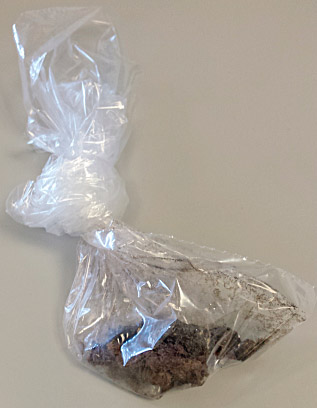Animals
 Genetic research using modern DNA-techniques can be performed in nearly all animal species. Only a small amount of sampling material is needed to perform genetic research, for instance a few blood drops or a few hairs. DNA-analysis is a rapid process and the results may be expected within a few days to a few weeks, depending on the desired analysis. Since the genetic code captured in the DNA is stable and unique to the individual, DNA-analyses are very reliable.
Genetic research using modern DNA-techniques can be performed in nearly all animal species. Only a small amount of sampling material is needed to perform genetic research, for instance a few blood drops or a few hairs. DNA-analysis is a rapid process and the results may be expected within a few days to a few weeks, depending on the desired analysis. Since the genetic code captured in the DNA is stable and unique to the individual, DNA-analyses are very reliable.
For almost 20 years, Gendika has performed DNA-analyses in a range of animal species. Amongst the species studied are (farm)animals, such as dogs, cats, guinea pigs and donkeys as well as the more exotic animal species such as dolphins, gorillas and aardvarks.
DNA-analyses may also be used to answer research questions in ecology. DNA can be obtained from samples that are easy to collect in nature, such as faeces, hairs or (owl)pellets. Different analyses may be performed on ecological samples. The estimation of population sizes, sex determination, diet analysis and disease analysis are amongst the possibilities. In addition, DNA-analysis based on faeces can be used to identify the animal species. The DNA of for instance martens, foxes, roe deer, bats and owls can be analysed.
Select an item in the submenu or contact Gendika by phone (0031 (0)598 619343) or email (info@gendika.com) for more information.
Parentage analysis
The hereditary information of every living organism is carried by its DNA. The DNA contains a genetic code that uniquely defines an individual. Two individuals can only possess identical genetic codes if they are identical twins. The genetic code is fixed throughout an individual’s lifetime. By analysing the DNA, the genetic code of an individual (the so-called genotype) can be determined. This genotype can be used to identify an individual. DNA-genotyping is useful for several purposes, a few examples are described below.
- Parentage analysis: The DNA-genotype of an individual is derived from the DNA-genotype of both parents; offspring inherit 50% of their genetic code from their mother and 50% from their father. Parentage analysis uses this information to determine an individual’s origin. Whether an individual is indeed an offspring of its suspected parents can be determined by comparing their DNA-genotypes.
- A DNA passport: The DNA-genotype of an individual may be used a “passport” that can later be used to identify the individual. This passport may for instance identify a bird that has been stolen.
- Genetic diversity: The amount of genetic diversity within a population can be determined by comparing DNA-genotypes within the population. This information may be used to determine the strategy of breeding programmes of endangered species.
Requesting DNA-genotyping/parentage analysis:
 During the almost 20 years of her existence, Gendika built up considerable experience in DNA-genotyping using different species, such as dolphins, donkeys, cats and dogs. DNA-genotyping cannot be performed in all species. If you would like to request DNA-genotyping, please contact Gendika so we can investigate whether DNA-genotyping is possible in your animal species.
During the almost 20 years of her existence, Gendika built up considerable experience in DNA-genotyping using different species, such as dolphins, donkeys, cats and dogs. DNA-genotyping cannot be performed in all species. If you would like to request DNA-genotyping, please contact Gendika so we can investigate whether DNA-genotyping is possible in your animal species.
As the source of DNA, pulled hairs, a buccal swab or a blood sample may be used. Sampling material can be requested by calling: 0031 (0)598-619343, by emailing us at info@gendika.com, or by filling out our information request-form.
Other possibilities for DNA-analyses in animals
Sexing:
In case mammals lack external characteristics that indicate whether they are male or female, DNA-analyses can be used to determine the sex. Gendika is experienced in sex determination in a number of mammalian species, for instance aardvarks, beavers and anteaters.
Detection of hereditary characteristics:
Using DNA-analyses, both desired and undesired genetic characteristics (i.e. diseases) of an animal can be detected in an early stage. Of a large number of characteristics, the genetic basis is known. In case you would like to test the DNA of your animals, please contact Gendika by phone (0031 (0)598 619343) or email (info@gendika.com), so we can inform you about the possibilities for DNA research in your animal species.


